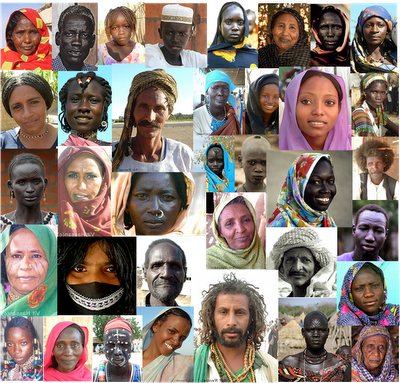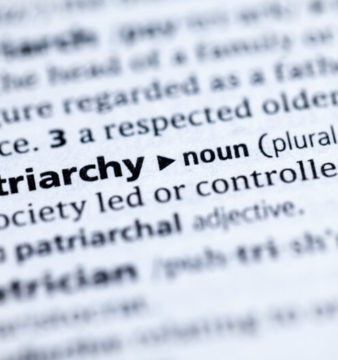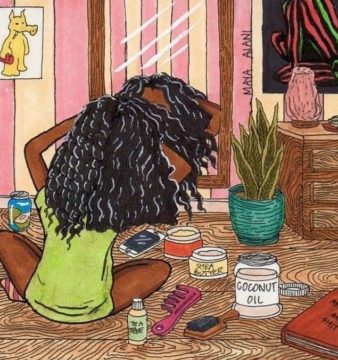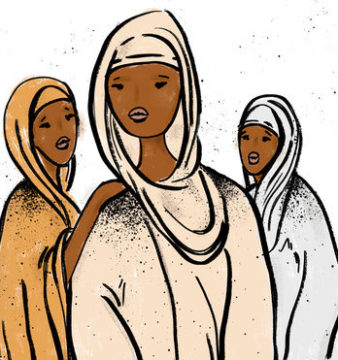Racism in Sudan: A cultural trait
‘Del a’abeed‘, which translates to ‘They are slaves’, is a very common term in Sudan. ‘Slaves’ is the correct translation you may find in Google translator. However, A’abeed in reality has a completely different meaning in Sudan. We don’t have actual slaves in Sudan to refer to when using this word, but we have A’abeed according to our culture. Get it? I will explain.
I will use the word A’abeed just as an example to demonstrate Sudan’s paradoxical racism, since it is the most common phrase. Other similar words are Halaby (light-skinned), Arabi (Arab), Gharaby (Westerner; from western Sudan), Nubawi (from the Nuba) etc. They don’t all have the same meaning but they are all used in a similar way; mostly to abuse or degrade another.
As Sudanese citizens, racism runs through our veins, it is in our DNA, and fortunately it is a non-biological mutation. In fact, it is a cultural, social and a traditional mutation that can be treated. I was shocked when I found out that my grandparents used to call on a dark skinned person using phrases like ‘Ya a’abid‘ (You slave; for men) or ‘Ya khadim‘ (You slave; for women); this was done shamelessly right in front of them. Ironically, my grandfather was a very dark skinned man himself, but apparently he either believed otherwise or managed to categorize himself as a dark skinned person, not a A’abid.
The following generation, my parents, took a different approach expressing racism. They don’t mind their children having friends from different backgrounds – what ever that means in Sudan – as long as there is no marriage involved. Marriage is like the racism alarm bell for parents. If a son or daughter is considering marrying a partner whose great great great grandparents are categorized as A’abeed and Khadam, then he or she should think again. People might not realize how racist their parents are until they press the marriage button.
The new generations tend to use these racist phrases impulsively. Unfortunately, it has become part of our vocabulary. Calling someone ‘Ya a’abid‘ nowadays is considered a joke. Friends would use the word to call on each other or sometimes to add a sense of humor to a conversation. However, unlike their ancestors, they don’t have the courage to racially abuse someone right in their face. Instead, they would whisper it if they truly feel deep inside that the person is categorized as a A’abid.
Racism is everywhere. It has been around for thousands of years all over the world, and Sudan is not an exception. I have always been aware why some whites are racist towards blacks, why some Americans are racist towards muslims, why some Europeans are racist towards Arabs and vice versa. However, these racisms are justified in a way – not a sensible way. For instance, most of us can understand why Americans are racist towards Muslims, but I can’t justify – at least for the sake of the argument – why we as Sudanese, are racially discriminatory. We discriminate based on softness of hair for God’s sake.
As much as we are proud of our Afro-Arab Islamic identity, it’s hard not to notice that the majority of us are a mixture of the three identities that are most subjected to racism. Think about it, if we are racists towards each other, what would we expect others to be towards us?






This is a big problem that we, as a Sudanese nation, should take care of and solve, so we can improve ourselves.
Thanks for using my composed image..
It tells all about Sudan: History, People and Future..
I really feel contributing with something sustainable..!
I don’t think it’s strictly correct to call anti-muslim sentiment ‘racism’. Anti-semitism can be used for dislike of muslim people of arabic origin.
Coming from UK where racist terms of speech are very common it is no surprise to hear of racism in Sudan. Just as in Sudan there are forms of racism in Europe directed against other white people This observation has been made over 100 years ago by black Americans visiting Europe and seeing how Slavs are sometimes viewed by some Germans, or how Irish are viewed by some English.
When I lived in Thailand I also noticed how many Thai men liked to talk of women with ‘white skin’ as being more desirable.
Racism is often based on ignorance, and in this World the rich and powerful exploit all kinds of ignorance for their own ends, so when a person hears words with racial connotations it’s better to take an attitude of caution and watchfulness rather than rage or anger..Some people can use inadvertently use racist language because they have not had a chance to get a good education., while other people use racist language because they seek consent for genocide.
Dear Wael ,
I just remember the conversation that we had ( me & U) immediately after the death of the late Dr.Garang . thats why we need new sudan
(Sudan jadeed )
.
by the way there is a book called (علاقات الرق في المجتمع السوداني ) written by the late M.I.Nugud , plz do have a look on it . 🙂
Regards
Bonguz
Very profound article, it made my day.
Thank you very much, Wael!
@Adil Abdalla: amazing picture!